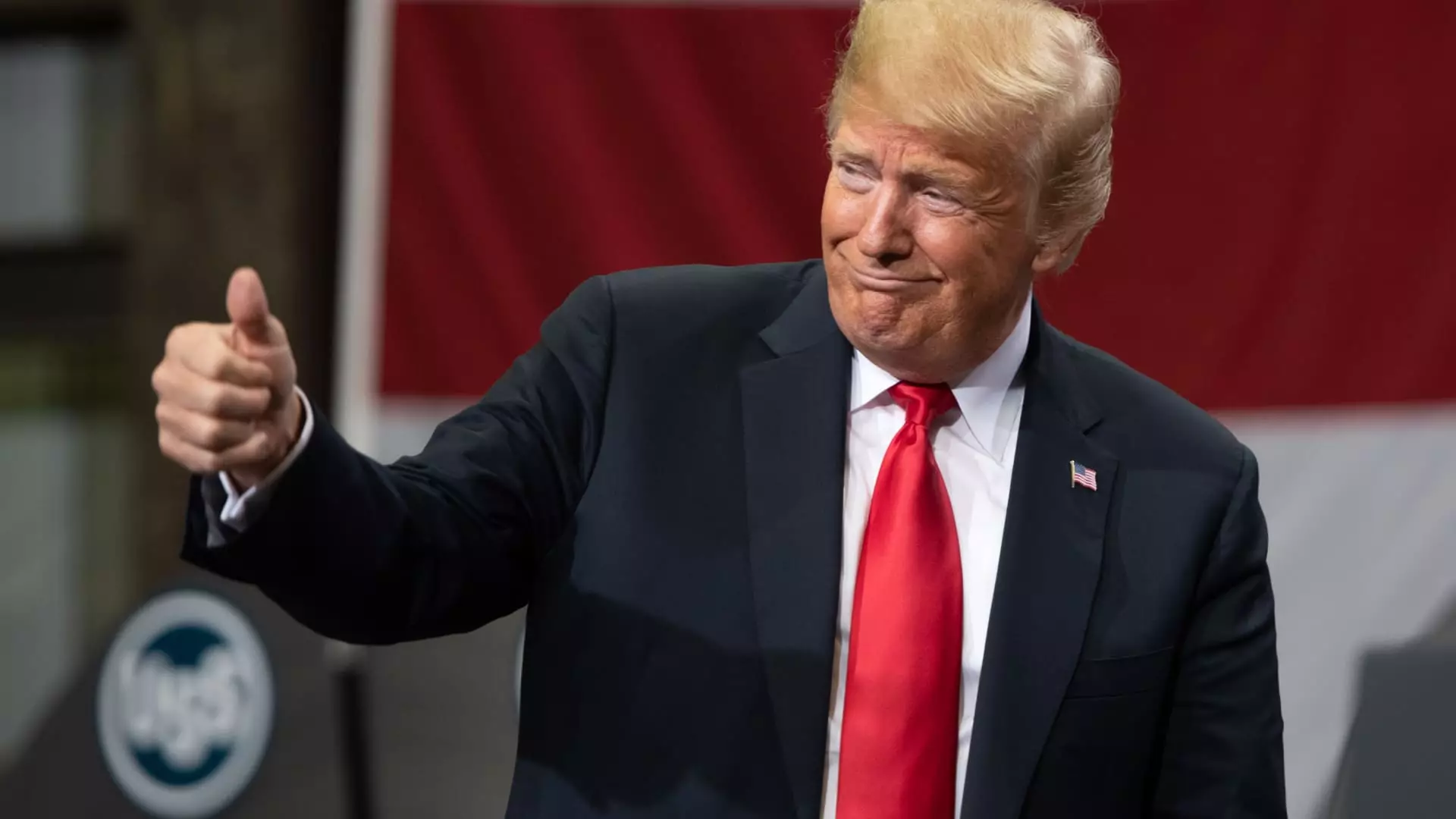On a seemingly ordinary Wednesday morning, President Donald Trump ignited a whirlwind of trading activity with a simple post on Truth Social. He boldly declared, “THIS IS A GREAT TIME TO BUY!!!” This proclamation, made just as the New York Stock Exchange was opening, caught the attention of investors looking for direction. The subsequent rise in stock prices after the announcement of a rollback on tariffs left many baffled—and some elated—by the apparent fortune that followed. In just a few hours, stocks surged, reigniting conversations about the volatile relationship between market stability, political statements, and those willing to gamble on Trump’s every word.
Trump’s Twitter-like message served more than just optimism; it was a shrewdly crafted invitation for investors to flock to the markets. The immediate result? An impressive uptick in stocks like the S&P 500 ETF Trust (SPDR) and Trump Media & Technology, which saw substantial percentage jumps almost instantly. For many, the message translated into quick profits. But this event begs the question: are we witnessing astute market intuition or a dangerous tiptoe into the precarious landscape of market manipulation?
Measuring the Impact: Win or Manipulation?
Let’s break it down. If you acted on Trump’s vocal enthusiasm within minutes, you could have turned a $1,000 investment into a larger fortune as stocks soared. Yet this scenario merits deeper consideration. The notion of leveraging a political figure’s commentary for financial gain sits uncomfortably for many investors, who wonder if this breached ethical boundaries. An investor’s moral compass becomes vital in determining whether these fluctuations are healthy for a free market—or destructive to its credibility.
Additionally, the contrast between comments made prior to his “buy” post and the subsequent market behavior illustrates a direct link between political maneuvering and financial volatility. Just a week before the opening bell, Trump had laid out a plan that distressed many with steep import taxes—a revelation that dragged down stock prices substantially. What message does this send about the reliability of market indicators? For the average investor, it portrays a speculative climate where trust has become a commodity more precarious than any stock.
As trading behavior swung wildly on the day of Trump’s declaration, platforms like Reddit’s WallStreetBets erupted in heated discussions. Some users embraced the temporary windfall, calling themselves “psychics” for acting on gut feelings—while others cast suspicion on the integrity of such presidential commentary. Are investors being urged to speculate recklessly, or are they being offered legitimate investment insights? The blurred lines between advice and manipulation require critical consideration, highlighting the shaky foundation upon which emotional trading decisions are often made.
The Broader Implications of Political Influence
The events of that Wednesday mirror a broader trend in which political discourse intertwines intimately with market dynamics. When Trump insinuated direct links between his personal interests and stock trades, did he open Pandora’s box, or was this simply another tactical maneuver to bolster his position? While some celebrate the returns, others fear that such empty proclamations could lead to regulatory implications and redefine the boundaries of acceptable market activity.
Whether one aligns with the urgency to invest or remains skeptical about the intentions of a prominent political figure, the episode reignites discussions on accountability. The fine line between investor confidence and market manipulation remains a pressing issue. The behavior exhibited by active traders, voraciously buying based on whims rather than sound analysis, drags the market into a game of chance rather than a stable investment strategy.
Are We Enthralled or Disillusioned?
As the dust settles on the surge in stock prices following Trump’s post, one cannot help but wonder who the real winners and losers were during this flurry of activity. While investors who acted on impulse may have pocketed profits, a more thoughtful examination reveals the tension between political influence, ethical trading, and the potential for a long-term disillusionment with a once-stalwart market.
In assessing this incident and its ramifications, we must scrutinize our place within this volatile realm. Do we embrace risk and allow political figures to steer our financial futures, or do we reject the notion that serendipitous tweets and posts dictate our economic landscape? The consequences of these choices will echo beyond this moment, shaping the philosophy of investing for years to come. The real challenge remains: will we prioritize prudent analysis over blind faith in an unpredictable political narrative?


Leave a Reply